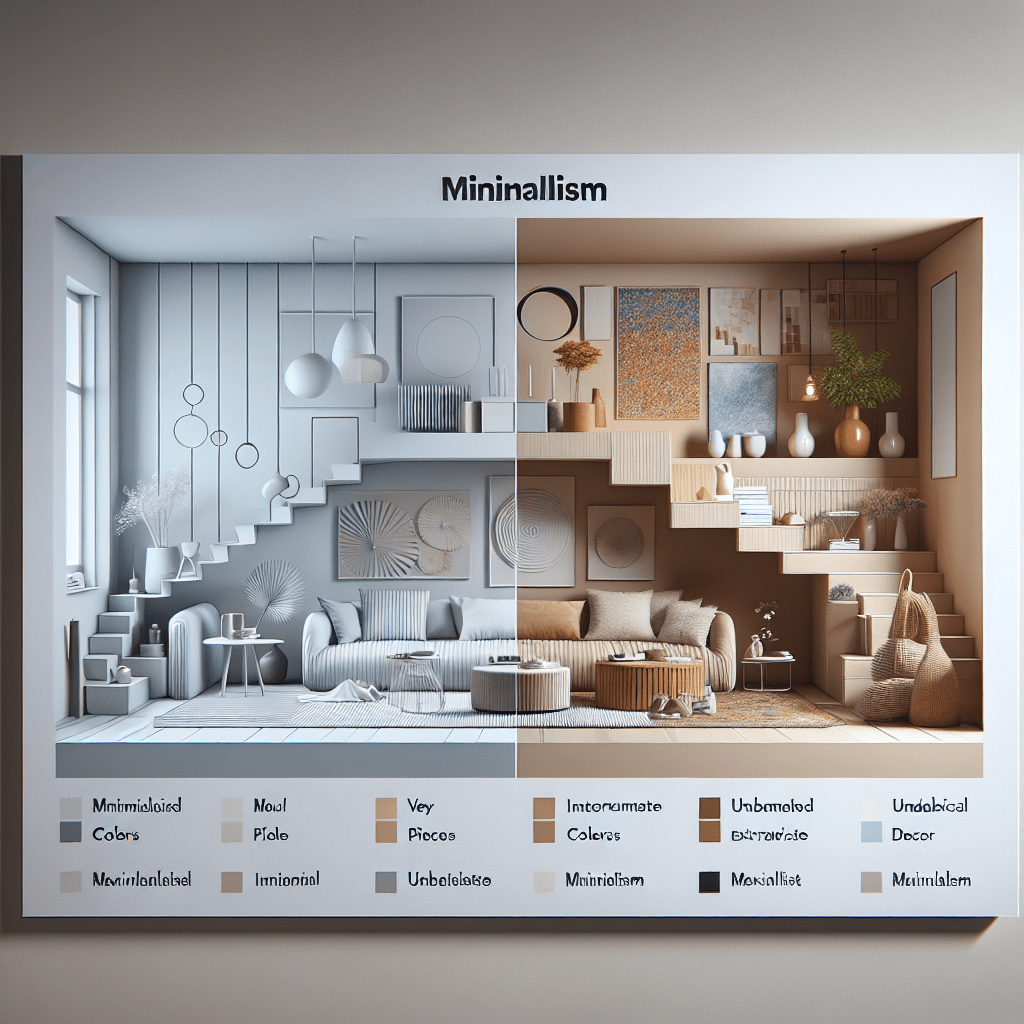In recent years, there has been a shift in the design world from minimalism to maximalism. While the clean lines and neutral colors of minimalist interiors have long been popular, many homeowners are now embracing a more eclectic and opulent style. This evolution reflects a desire for self-expression and a departure from the austere aesthetic that dominated the early 2000s.
The Rise of Minimalism
Minimalism first gained popularity in the mid-20th century as a reaction to the excesses of consumer culture. Designers like Mies van der Rohe and Le Corbusier championed the idea that “less is more,” advocating for simple, functional spaces that emphasized clean lines and uncluttered surfaces. The minimalist movement reached its peak in the 1990s and early 2000s, with sleek, monochromatic interiors dominating the design world.
The Shift to Maximalism
In the last decade, however, there has been a noticeable shift towards maximalism in Interior Design. This style is characterized by bold colors, intricate patterns, and an eclectic mix of furnishings. Maximalist interiors are often filled with art, antiques, and other decorative objects that create a sense of opulence and luxury.
One of the driving forces behind the rise of maximalism is a desire for individuality. In a world where mass-produced furniture and decor are readily available, many homeowners are seeking out unique pieces that reflect their personality and tastes. Maximalism allows for a more personal and expressive approach to design, with no strict rules or guidelines to follow.
The Evolution of Contemporary Interiors
The evolution from minimalism to maximalism reflects a broader cultural shift towards embracing diversity and inclusivity. In the past, design trends were often dictated by a small group of elite tastemakers, but today, there is a greater appreciation for different styles and aesthetics. This has led to a more democratic approach to Interior Design, where individuals are encouraged to create spaces that reflect their own identities and values.
Contemporary interiors now encompass a wide range of styles, from minimalist to maximalist and everything in between. Mixing and matching different design elements has become increasingly common, with many homeowners opting for a more eclectic and personalized look. The boundaries between different styles have blurred, allowing for greater creativity and experimentation in the design process.
Conclusion
The evolution of contemporary interiors from minimalism to maximalism represents a shift towards self-expression and individuality in design. While minimalism will always have its place in the design world, many homeowners are now embracing a more eclectic and opulent style that allows for greater creativity and personalization. The boundaries between different design styles are becoming increasingly blurred, leading to a more diverse and inclusive approach to Interior Design.
FAQs
Q: What are some key characteristics of minimalism in Interior Design?
A: Minimalist interiors are characterized by clean lines, neutral colors, and a focus on simplicity and functionality. Furniture and decor are often sleek and unadorned, creating a sense of calm and order in the space.
Q: How can I incorporate maximalist elements into my home?
A: To incorporate maximalist elements into your home, try mixing bold colors, patterns, and textures. Don’t be afraid to layer different styles and eras of furniture and decor to create a sense of opulence and luxury.
Q: Is it possible to combine minimalism and maximalism in Interior Design?
A: Yes, it is possible to combine elements of both minimalism and maximalism in Interior Design. Mixing clean, simple lines with bold colors and textures can create a unique and personalized space that reflects your individual style.
TIP
When transitioning from minimalism to maximalism in your interiors, start by incorporating small decorative elements like throw pillows, rugs, and artwork. This will allow you to experiment with different styles and textures without committing to a complete overhaul of your space.
#Minimalism #Maximalism #Evolution #Contemporary #Interiors

